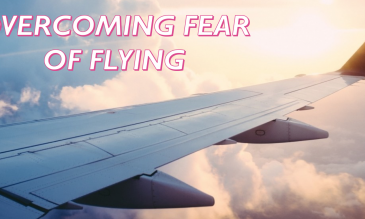What is Ryanair policy on pet acceptance?
Ryanair does not carry animals on their flights, except for Guide/Assistance Dogs on certain routes.
Guide/Assistance Dogs
Guide/Assistance Dogs are not accepted on flights on to and from Morocco and Israel.
In accordance with regulatory requirements (EU-OPS 1.260), the flight crew must ensure that access to emergency equipment and evacuation of the aircraft in an emergency will not be impeded before allocating seats. Some categories of passengers are required to sit in designated seats on board, in order to prioritize the safety of all passengers in the event of an emergency aircraft evacuation. If the word (PRM Seat) is displayed on the boarding pass, then a designated seat is held for that person in the cabin.
Passengers traveling with an Assistance Dog are required to be seated in designated seats onboard. There are two types of special assistance that can be booked when traveling with an Assistance Dog. The booked special assistance type will be detailed on the online boarding pass:
- Assistance type (BDGR) – Passenger traveling with an Assistance Dog that requires a walker through the airport of departure and arrival to and from the aircraft seat and separate safety briefing from cabin crew.
- Assistance type (PETC) – Passenger traveling with an Assistance Dog, but doesn’t require special airport special assistance services.
General Guidelines for Travel
To be accepted on a Ryanair flight, a Guide or Assistance Dog must be trained to perform tasks for the benefit of an individual with a disability (physical, psychiatric or sensory). The Guide or Assistance Dog shall wear a standard identifying jacket or harness throughout the journey.
Assistance Dogs travel in the aircraft cabin and must sit on the floor at the passenger’s feet. Four Guide/Assistance Dogs are permitted per flight. The dog, as well as food and containers, are carried free of charge.
Any passenger wishing to travel with a Guide or Assistance Dog on board should pre-advise Ryanair, preferably on the same day as booking. This can be done online. Failure to pre-advise may result in the service being unavailable on arrival at the airport and you being unable to travel on your booked flight.
Passengers traveling with a Guide or Assistance Dog on all EU/EEA flights must carry a valid Pet Passport or third country official veterinary certificate, plus the required medical documentation. When entering the UK or Republic of Ireland, passengers traveling with a Guide or Assistance Dog must carry either a valid EU pet passport or a third country official veterinary health certificate and required medical documentation.
The veterinary health certificate or the EU Pet Passport must be supported with documentation confirming that the Guide or Assistance Dog is affiliated to one of the following organizations to enable entry to the UK, the Republic of Ireland, or EU/EEA countries:
- International Guide Dog Federation.
- Assistance Dogs UK (only for entry to the UK or the Republic of Ireland).
- Assistance Dogs International (ADI).
It is the passenger’s responsibility to ensure that the Pet Passport presented complies with the vaccination and treatment requirements of the destination country and is up to date. Ryanair cannot accept liability for any Guide or Assistance Dogs that are incorrectly documented. You should contact the destination airport to confirm Pet Passport details before travel if you have any doubts about your dog’s eligibility to travel.
Guide or Assistance Dog owners will need to obtain an official veterinary health certificate to show that their dog complies with the rules of the Pet Travel Scheme in countries which do not issue Pet Passports.

 En
En Es
Es Fr
Fr







